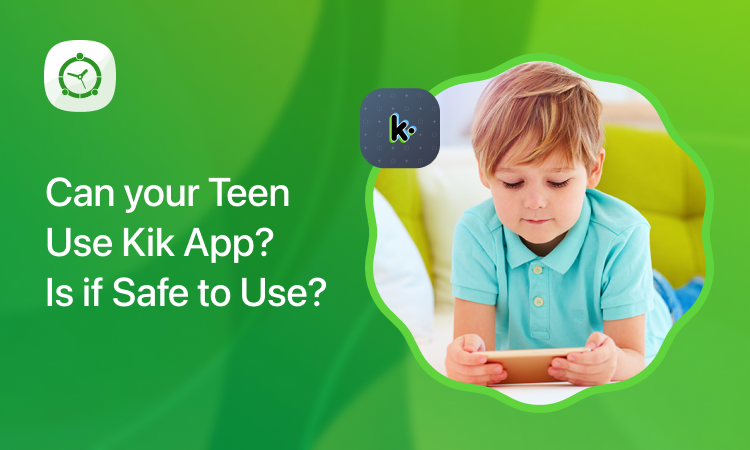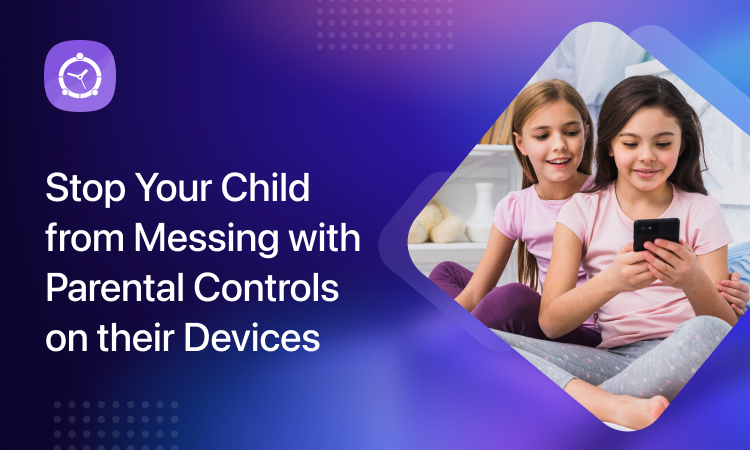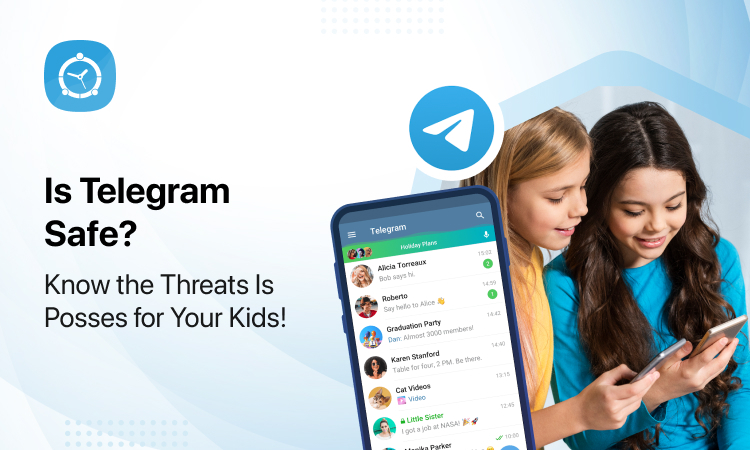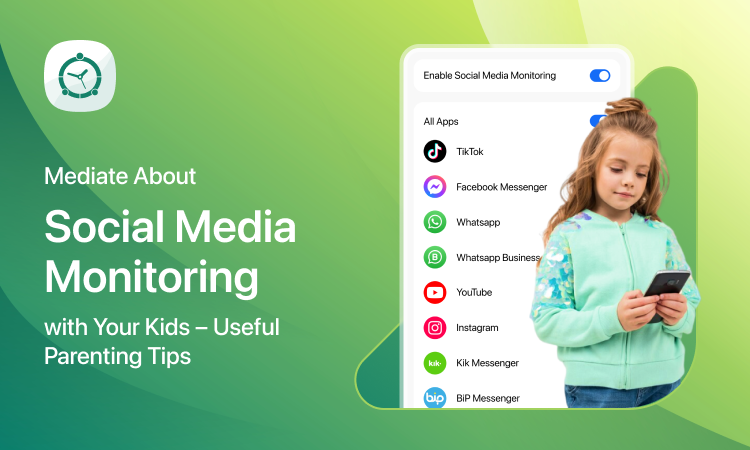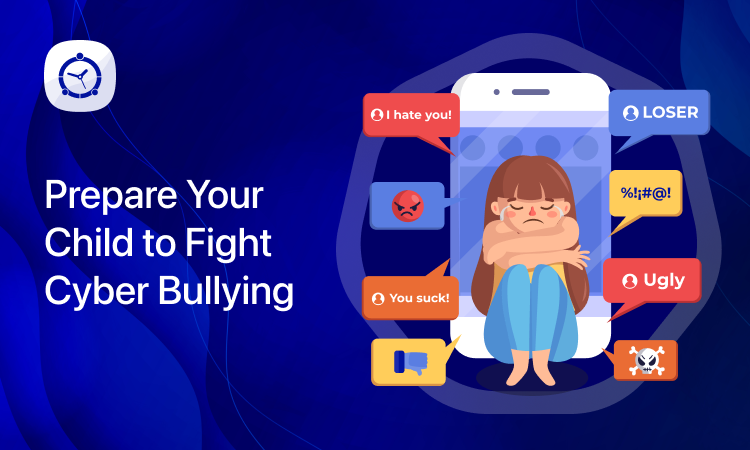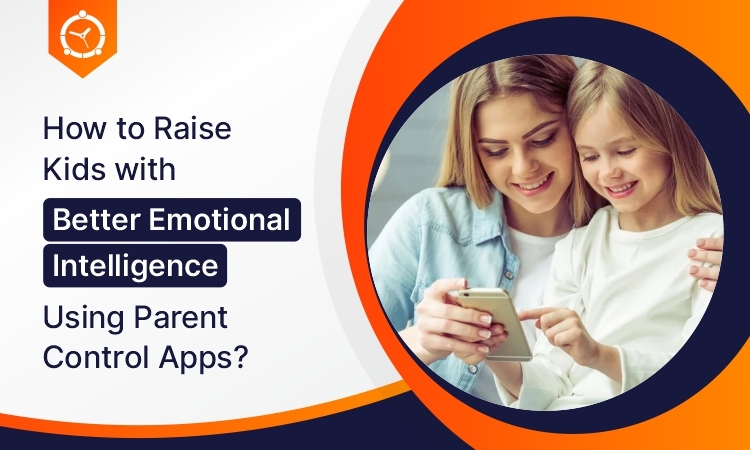
Parents must help their kids develop intelligence in every aspect, i.e., academic and emotional. Sadly, our society still values intellectual quotient (IQ) over emotional quotient (EQ). That is why parents don’t invest time to help kids understand their emotions or how they should express them. Kids learn to bury their heads in devices and screens to cool down instead. The question is, can parent control apps help us raise kids with better EQ? Let’s begin by understanding what emotional intelligence means.
What Is Emotional Intelligence?
Emotional intelligence, also known as emotional quotient (EQ), is an individual’s ability to express emotions (in a better way) and manage how they feel while respecting others’ feelings. Having emotional stability is the gateway to a successful and balanced life. Lack of emotional intelligence puts kids at a severe disadvantage in many respects. Let’s dive in and see how parent control apps help parents raise kids with better emotional intelligence.
The Art of Raising Kids with Better EQ Using Parent Control Apps
The young generation of the digital age struggles with expressing their emotions, and the number of teens suffering from mental health issues is sky-high. What could be the reason behind such drastic and dim circumstances? The answer is simple.
Modern-day kids are too busy interacting with technology and screens that they get very few opportunities to interact with other people. Excessive screen time is the leading cause of indifference and unstable relationships in modern society.
It seems that too much screen time is the root cause of low EQ in kids. Parents often struggle to limit their kids’ screen time without the help of parent control apps, such as FamilyTime. Here is how FamilyTime can help parents raise kids with better EQ.
- Help Them Identify Emotions
Parents can use FamilyTime’s Screen Time Limit feature to limit kids’ screen time. They can also use screen time more productively by showing kids educational videos and helping them identify different emotions. For instance, talking to them about reducing screen time and asking them how they feel about it is one way to begin.
- Show Kids How to Express Feelings
Parents can use FamilyTime’s Screen Time Schedule feature to define their daily routine and help increase their potential and productivity. Doing so frees up kids’ time so they can interact with family and friends. Consequently, parents can engage kids in conversations and show them how they can express themselves if a friend knocks over their stuff or how they must treat their siblings if they get angry.
- Build Empathy
Allowing kids to talk about their emotions and feelings instead of snubbing them or telling them not to cry is the best way to build empathy in them. Parents can prevent kids from wasting their time aimlessly surfing social media and developing mental health problems like depression by using FamilyTime’s App Blocker. It allows kids and teens to be mentally present and face their emotions instead of suppressing them.
- Teach Problem-Solving & Critical Thinking Skills
Instead of letting kids play violent games or spend time surfing on the internet for useless content, parents can help kids develop critical thinking skills by encouraging them to play games like chess or solve puzzles. You can use FamilyTime’s Internet Filter to ensure they do not surf age-inappropriate content.
Parenting kids of the digital age is a complex and daunting task. Moreover, building emotional stability is easier said than done. Teaching kids how to express their feelings is a lot more significant than society gives it credit. Let’s see how emotional intelligence (or lack thereof) impacts kids’ lives.
Impact of Emotional Intelligence on Kids
Several scientific studies prove that emotional intelligence benefits kids in more ways than one. For instance, it brings stability to their lives, helps build a grounded personality, allows them to be in control of their emotions, and more.
Here are a few essential benefits kids reap after developing emotional intelligence.
- Better Intelligence Quotient (IQ)
Kids who know how to deal with their emotions have a better intelligence quotient (IQ) and do well in their academic and professional life.
- Stable Relationships
A higher emotional quotient also helps kids show empathy and compassion, which (in turn) helps them form stable relationships in life.
- Higher Success Rate
Parents who help their kids identify their emotions and teach them better ways to deal with their feelings ensure their kids’ success in life.
- Improved Mental Health
People with the ability to tame their emotions and feelings lead healthier lives. Therefore, parents can help enhance their kids’ mental health by assisting them in understanding their sentiments.

Since modern-age kids prefer interacting with technology instead of humans, this task is even more challenging for parents. Therefore, perhaps the logical step is to lessen their interaction with screens, and what better (easier) way to achieve that goal than by using parent control apps, such as FamilyTime.
So, are you ready to begin helping kids develop their emotional intelligence? Sign up and get started today!



